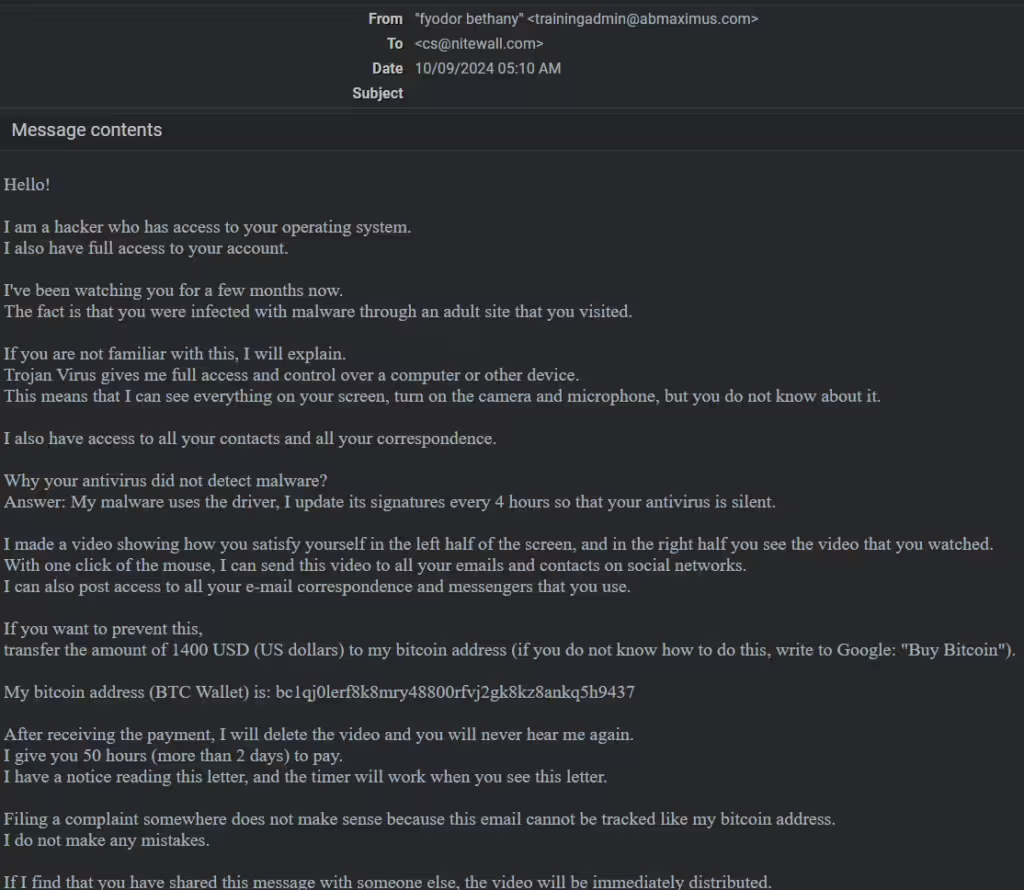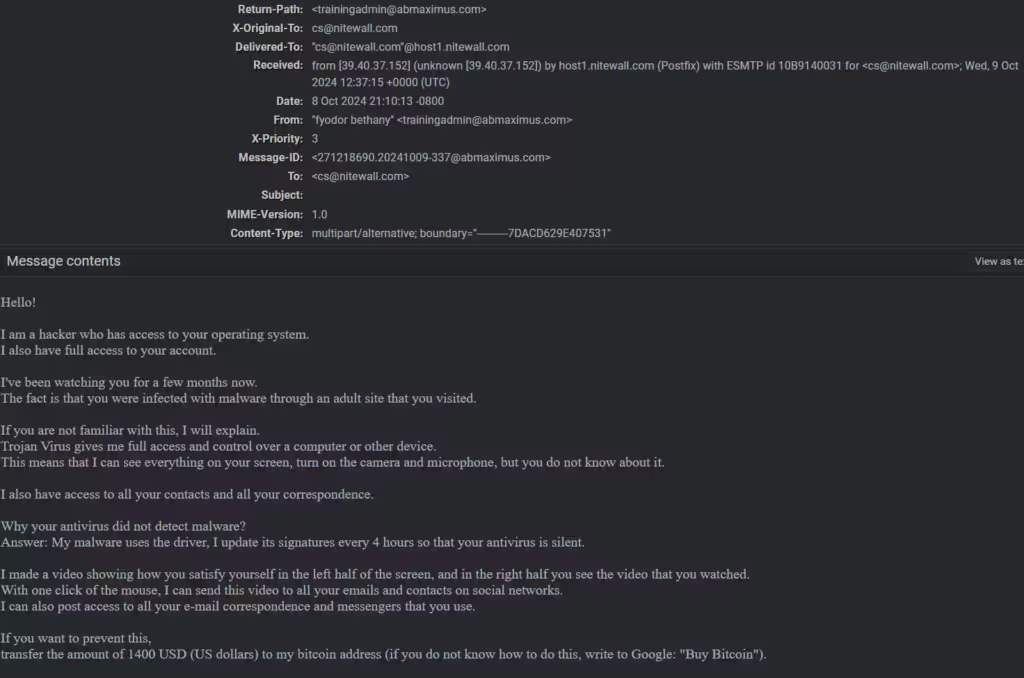In today’s digital age, cybercriminals are constantly devising new ways to exploit unsuspecting individuals. One particularly alarming tactic is the sextortion scam. This post aims to inform you about what sextortion scams are, how they operate, and what steps you can take to protect yourself.
What is a Sextortion Scam?
A sextortion scam is a type of cybercrime where the attacker claims to have compromising information or footage of the victim. The scammer then threatens to release this material unless a ransom is paid, usually in the form of cryptocurrency like Bitcoin. These threats are often baseless, but they can be incredibly distressing for the victim.
How Do Sextortion Scams Work?
- Initial Contact: The scammer sends an email or message claiming to have hacked your device and recorded compromising footage of you.
- Threats and Demands: The message will typically include threats to share the footage with your contacts unless you pay a ransom.
- Psychological Pressure: The scammer uses fear and urgency to pressure you into complying with their demands.
Why You Shouldn’t Panic
It’s important to remember that these threats are usually empty. Scammers often send these messages to thousands of people, hoping that a few will fall for the scam. Here are some steps you can take if you receive such a message:
- Do Not Engage: Do not reply to the message or click on any links.
- Change Your Passwords: Update your passwords for all your accounts, especially if you use the same password across multiple sites.
- Run a Security Scan: Use a reputable antivirus program to scan your device for malware.
- Report the Scam: Notify your email provider and report the scam to local authorities or a cybercrime reporting center.
How to Protect Yourself
- Use Strong Passwords: Ensure your passwords are complex and unique for each account.
- Enable Two-Factor Authentication: This adds an extra layer of security to your accounts.
- Be Cautious Online: Avoid clicking on suspicious links or downloading unknown attachments.
- Keep Software Updated: Regularly update your operating system and software to protect against vulnerabilities.
Sextortion scams are a serious threat, but by staying informed and taking proactive steps, you can protect yourself from becoming a victim. Remember, the best defense is a good offense—stay vigilant and secure your digital life.
For example, you might receive an email like this:
From: "fyodor bethany" <trainingadmin@abmaximus.com>
Subject: Your account has been hacked
Hello!
I am a hacker who has access to your operating system.
I also have full access to your account.
I've been watching you for a few months now.
The fact is that you were infected with malware through an adult site that you visitedHere is the screenshot image of the email that we have received. :))


